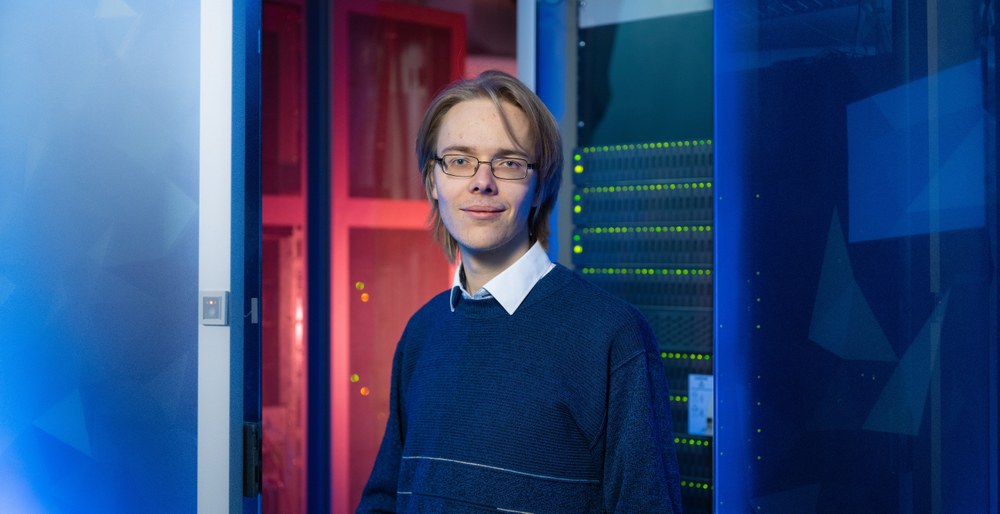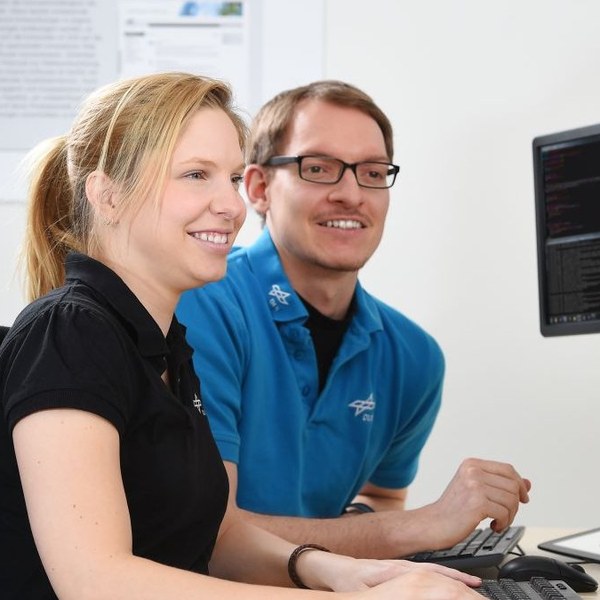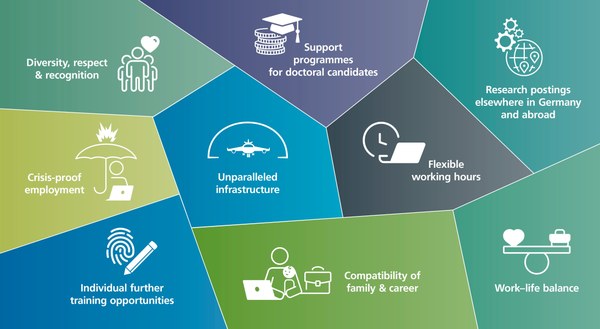Daniel Schenk
Field of study: Computational science and engineering
Now: Institute of Software Technology
After completing a bachelor's degree in computer science, Daniel Schenk is now pursuing a master's degree in computational science and engineering. He is also working as a student assistant at the DLR Institute of Software Technology in the Visual Computing and Engineering department.
Here, Daniel discusses his experiences and work in the development of visualisation software at DLR.
Daniel, what do you look forward to when coming to work in the morning?
Daniel: I look forward to knowing more after work than I did in the morning.
What are you researching or working on?
Daniel: At DLR, I am helping to develop a program that generates synthetic images of satellites in Earth orbit. I work with Unreal Engine 5, one of the most advanced tools in game development.
„My work aims to help generate training data for computer vision systems for use in servicing robots in Earth orbit“
My daily work consists mainly of programming with C++ and the visual scripting environment of Unreal Engine. In my work, I am constantly discovering new tools. For example, I'm using a software library that is normally used for calculating the position of space probes to determine the location of satellites, the Earth and the Moon for visualisation purposes. In the last few weeks, I have adapted a functionality of Unreal Engine, which is actually intended for the production of live television programmes, for the purposes of our project. Every task brings variety and a new challenge.
Where and how can your work be used?
Daniel: My work aims to help generate training data for computer vision systems for use in servicing robots in Earth orbit. Although there is still a long way to go, my work could help prevent space debris formation in the future through the servicing of satellites in orbit.
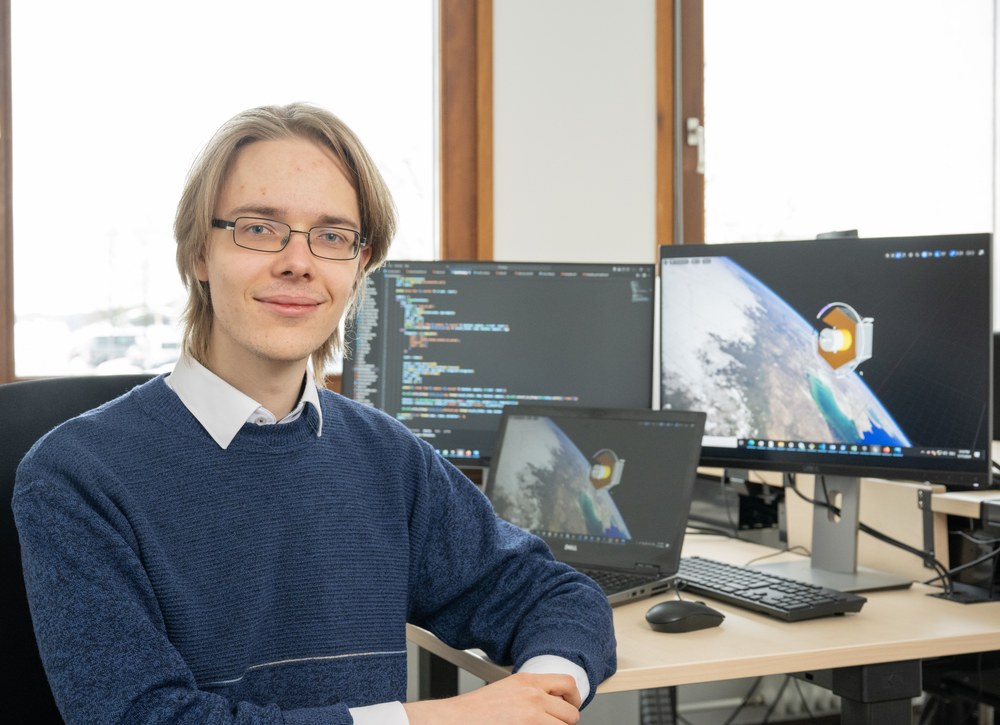
What brought you to DLR?
Daniel: I first became interested in DLR years ago when I attended an open day at the site in Oberpfaffenhofen. I came to my current position at the Institute for Software Technology through a career fair at the Technical University of Munich.
„Compared to my studies, I work on much more complex software at DLR. This gives me valuable practical experience and insights into research.“
What do you take away from DLR for your studies and your future career?
Daniel: At DLR, I consistently engage with emerging applied technologies. A significant aspect of my role entails acquainting myself with various tools and seamlessly integrating their functionalities into our applications. In contrast to my university studies, my work at DLR involves tackling significantly more intricate software. This exposure provides me with invaluable practical experience and deep insights into the realm of research.
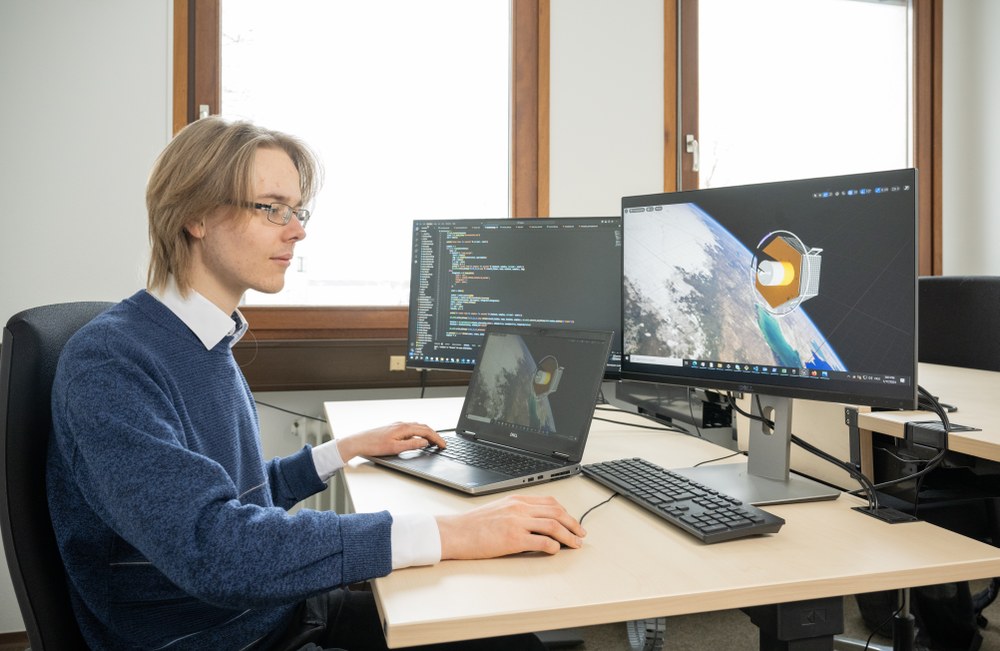
What are the highlights of your work?
Daniel: Finally understanding a problem in the code after several days and fixing it with just a few lines.
Leave us a final thought.
Daniel: Although ‘German Aerospace Center’ might not really sound like a place for computer scientists, there are actually a tremendous amount of opportunities here.

